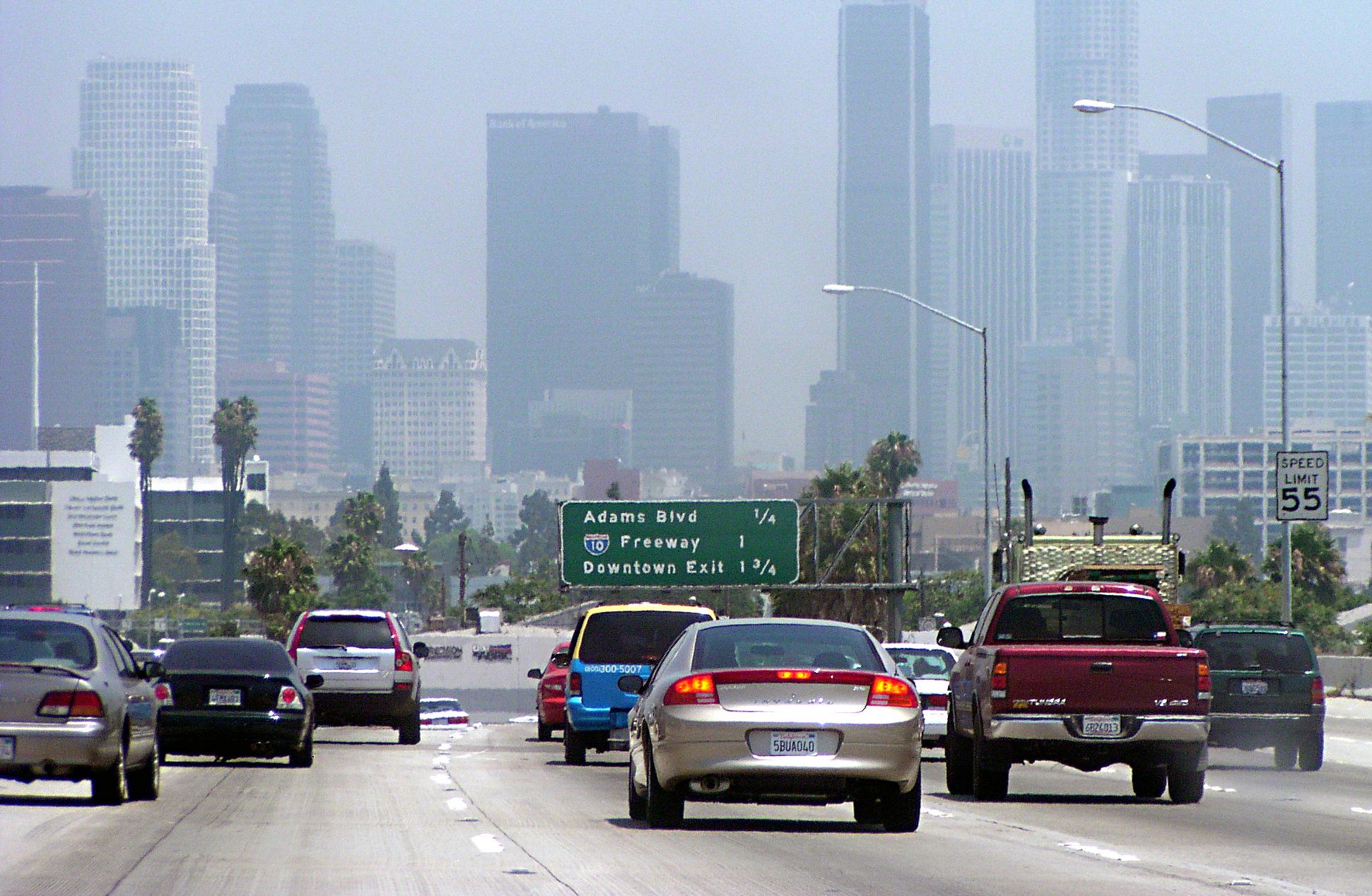
The NRDC's "Beyond Oil" campaign. Are national environmental groups ready to shift their strategy?
Earlier this month, the Wall Street Journal's Joseph White, who covers the auto industry in his "Eyes on the Road" column, made a prediction that livable streets advocates will welcome. In the next year, he forecast, national environmental groups will re-focus their Congressional lobbying to emphasize reducing the amount Americans drive:
Last year's energy debate centered around CAFE, the acronym for Corporate Average Fuel Economy. The next phase of the energy/climate change debate over cars will force us to learn another piece of technical jargon: VMT, or vehicle miles traveled.
Now, many of the environmentalists, politicians and scientists who made the case for boosting vehicle fuel efficiency are turning their attention to the problem of how much we drive -- and the legacy of 20th century land use and transportation choices.
Deron Lovaas, a transportation researcher with the Natural Resources Defense Council, predicts that the debate over how to curb driving will come to the fore next year, when Congress is scheduled to debate a massive bill to fund transportation projects using federal gasoline tax revenue. The NRDC and other environmental groups, fresh from their victory in the fuel-efficiency debate, are turning their attention to issues such as reforming land use rules to promote denser development and concentrating more public spending on better mass transit systems for metro areas, he says.
If this shift indeed comes to pass, it could mark an inflection point in the course of efforts to reduce emissions from transportation. CAFE standards and renewable fuels have long occupied the attention of well-funded environmental groups, keeping ideas like smart growth, transit-oriented development, and building walkable communities on the back burner, especially at the national level. But with evidence mounting that biofuels result in more emissions than fossil fuel, and enthusiasm for ethanol waning (at least in Europe), it may be harder for environmentalists to ignore the fact that America is not just addicted to oil, we're hooked on driving too.
Still, big-time environmental groups have yet to alter their public message. To use the example of the NRDC, their "Beyond Oil" website (pictured above) still puts "Better Cars" and "Better Fuels" front and center, while better land use and transportation planning are lumped under "More Solutions."
There's more solid evidence that White's article is part of another welcome trend: big media outlets emphasizing the connection between global warming and the way cities are planned. Leading the pack is Times reporter Andrew Revkin's Dot Earth blog. In January, Revkin announced that he will make "the urban age... a central focus" of his blog, and so far he is delivering.





